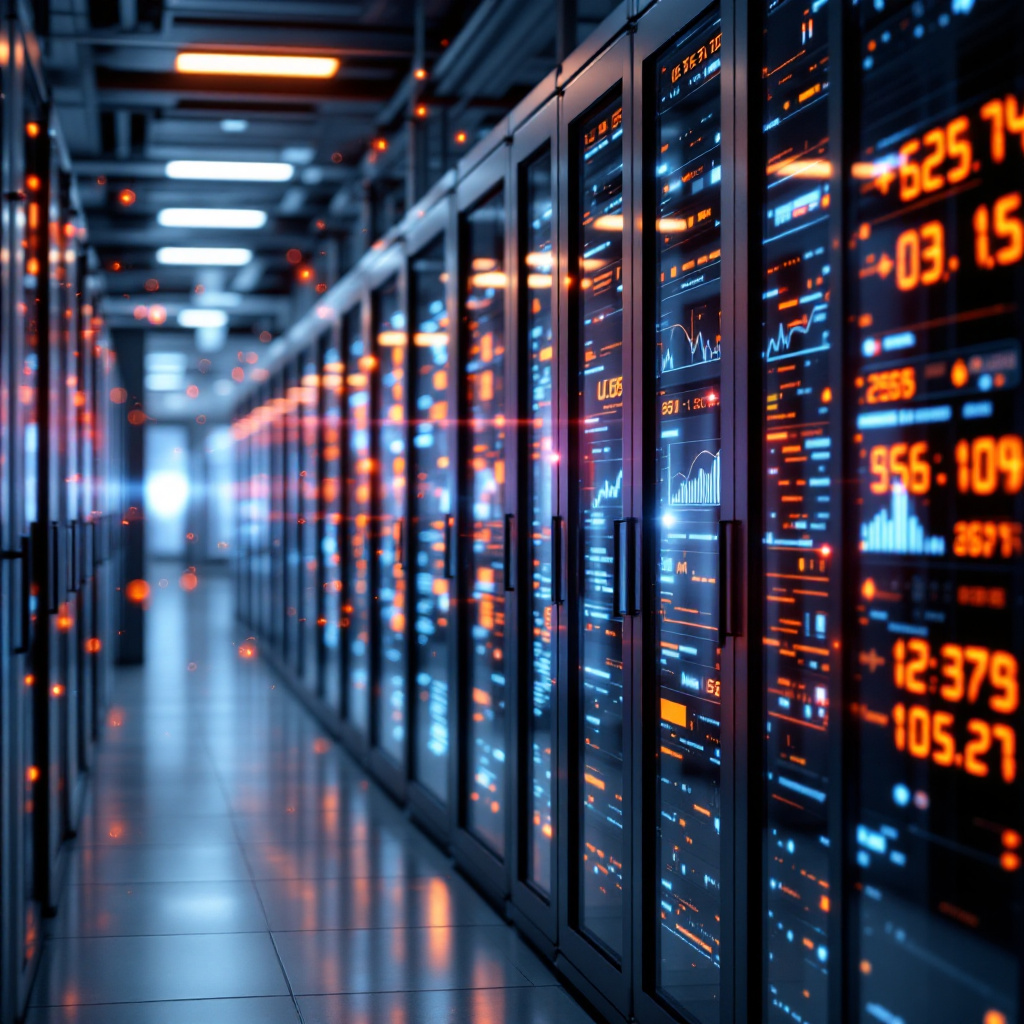agentic ai: defining superhuman AI agents vs human agents
The concept of agentic AI refers to artificial intelligence entities capable of autonomous action across a set of goals, adapting to changing environments and refining outputs over time. This approach differs from traditional automation, which typically follows fixed, rule-based instructions without adaptive reasoning. An AI agent in this context is more than a static program—it is a dynamic problem-solver that reacts and learns from input data. Unlike simple script automation, these AI-driven agents analyze, adjust, and self-correct within a defined operational scope.
Superhuman AI agents are designed to exceed human performance in specific tasks. These capabilities include processing vast datasets at computational speeds that no human could replicate and scaling those operations to global levels. For example, language model-based AI agents can review and synthesize scientific literature in minutes, a process that traditionally requires human researchers days or even weeks (source). Their strengths lie in quantitative analysis, consistency, and repeatability.
Human agents operate with strengths in empathy, ethical reasoning, and situational awareness, which remain challenging for AI to truly replicate. Humans can deal effectively with unstructured contexts and moral dilemmas. AI systems, while efficient, require careful oversight in situations involving nuanced human values. AI researcher Stuart Russell warns that while superhuman AI agents can transform industries through their speed and reach, they must be aligned with human values to avoid risks (source).
An AI agent handles specific tasks far faster than any individual, but human involvement ensures that ethical, emotional, and societal dimensions are respected. Gary Marcus stresses that the real strength of the future lies in combining machine speed with human empathy (source). This blending of roles shows that the debate is not about replacement but about synergy. Business leaders aiming to discover intelligence amplification should view this as an opportunity to balance human capabilities with AI precision, ensuring outcomes genuinely serve business needs and societal expectations.
ai agent: performance, accuracy and cost efficiency
The performance metrics for any AI agent stand out against human benchmarks. AI agents process and analyze data millions of times faster than people. In one scientific synthesis study, AI agents reached a 90%+ reliability rate, outperforming human experts in retrieving and summarizing knowledge (source). Such accuracy is particularly valuable for applications like compliance monitoring, financial services assessments, and predictive maintenance.
From a cost perspective, AI agents provide clear advantages. A properly configured AI-powered setup works 24/7 without the limitations of human shifts, breaks, or resource bottlenecks. In customer service environments, the integration of AI agents has shown ROI boosts of up to 40%, primarily by allowing human staff to focus on complex cases (source). These AI solutions are scalable across industries, handling repetitive tasks such as CRM updates, unstructured documents processing, and market analysis without fatigue.
Case studies in scientific discovery demonstrate the transformative impact. Language models now synthesize volumes of literature in minutes, exporting concise summaries for research teams and drastically improving time savings. This application reflects how many organizations use different AI agents for domain-specific tasks like legal review, medical imaging analysis, and logistics optimization. Companies implementing such specialized AI agents find they can drive innovation without expanding human headcount proportionally.
For large companies, deploying AI agents also means freeing up higher-value human effort. When the AI agent will make quick work of data-heavy processes, humans can maintain focus on strategic decisions. This alignment reduces cost per transaction while enhancing the overall customer experience, creating competitive advantages in markets where speed and precision matter most.

Drowning in emails? Here’s your way out
Save hours every day as AI Agents label and draft emails directly in Outlook or Gmail, giving your team more time to focus on high-value work.
automation: freeing human talent for strategic work
Automation powered by AI agents eliminates the need for people to perform tedious and repetitive tasks. Examples include data entry, basic email queries, and status updates, which can now be handled with minimal oversight. By enabling AI to automate these routine tasks, businesses allow human talent to shift toward strategic work that demands creativity, complex reasoning, and relationship management.
Hybrid environments, where AI agents handle mundane tasks while humans engage with higher-value objectives, demonstrate measurable productivity gains. A report suggests that integrating human agents with AI boosts operational efficiency by 30–50% in targeted sectors (source). For example, in logistics, applications such as case studies in AI-driven automation show consistent improvements in workflow accuracy and scalability.
Different industries adapt this model to meet sector-specific demands. In customer service, chatbots powered by conversational AI answer high volumes of simple inquiries, while human staff resolve complex tasks requiring empathy. In financial services, AI flags compliance risks in real-time, allowing human auditors to focus on higher-risk cases. In manufacturing, predictive maintenance systems alert engineers to potential failures before they occur, saving costs and preventing downtime.
Automation not only improves productivity but also optimizes the customer experience by ensuring response times are faster and resources are directed where they matter most. By embracing hybrid team models, many organizations discover that strategic human involvement in a technology-driven workflow enables them to transform outcomes across industries. This creates sustainable advantages by continuously refining where human judgment adds unique value.
building blocks: data, models and infrastructure
Building a superhuman AI agent begins with the right building blocks: high-quality datasets, robust machine learning models, scalable infrastructure, and reliable APIs. High-quality and diverse datasets underpin accurate AI decision-making. Without thorough data curation and validation, even the most sophisticated algorithms will deliver suboptimal results. Proper model alignment is equally important to ensure outputs meet human values and business needs.
Advanced language models enable significant breakthroughs in specific tasks such as summarization, risk detection, and market forecasting. Frameworks like LangChain and LangGraph allow developers to orchestrate complex workflows across multiple agents or specialized AI agents with extensive customization. For example, sales teams using CrewAI can combine general-purpose capabilities with specialized tools for data entry, enabling better CRM updates and more accurate lead scoring.
Cloud computing remains the delivery backbone, giving access to AI resources with flexibility. Organizations deploy AI-powered agents hosted on scalable platforms, enabling real-time analysis of unstructured documents, customer inquiries, and big datasets. Specialized AI handles industry tasks ranging from regulatory compliance to followup scheduling, integrating outputs seamlessly into operational systems.
Open-source libraries and commercial AI tools available in 2025 make it easier than ever to assemble custom AI configurations. Whether using general-purpose models or crafting custom AI aligned to complex problem-solving tasks, these building blocks provide the foundation. Large companies that prioritize infrastructure alignment with strategic objectives will find fewer bottlenecks in scaling AI adoption across industries, accelerating the capacity to synthesize information and drive innovation effectively.

Drowning in emails? Here’s your way out
Save hours every day as AI Agents label and draft emails directly in Outlook or Gmail, giving your team more time to focus on high-value work.
framework: guiding principles for human-AI collaboration
Defining a governance framework for human-AI collaboration is essential. Ethical standards, accountability, and transparency form the backbone of responsible AI deployment. For tasks involving customer experience, fairness and accuracy are as important as efficiency. Business leaders must clearly define which specific tasks remain human-led and which can be delegated to AI.
Best practices involve structured task allocation, continuous feedback loops, and layered human oversight. For example, when AI conducts compliance monitoring in financial services, human reviewers should validate findings before regulatory filing. Exploring the distinctions between AI automation and RPA can help businesses choose appropriate methods for each workflow. Ensuring that AI outputs align with the strategic objectives of the organization requires ongoing analysis and refinement.
Human oversight also addresses the inherent biases and limitations found in AI. Different AI agents, even when trained on similar datasets, can produce varying results based on parameters, model architecture, and data quality. Maintaining a human checkpoint at critical decision points reduces risk and strengthens trust. Aligning AI’s operational permissions with company policy safeguards against unintended actions and strengthens auditability.
Ultimately, the goal is not full replacement but augmentation. When AI solutions are guided by a transparent framework, organizations can better meet business needs while safeguarding human values. This kind of structure helps many organizations avoid compliance gaps, prevent errors, and enable a smoother integration of AI into everyday operations—ensuring sustainable competitive advantages that extend beyond initial ROI gains.
2025: preparing for the agentic AI era
By 2025, agentic AI is set to permeate different industries, from research and logistics to finance and healthcare. Adoption is accelerating because AI agents will make measurable gains in speed, accuracy, and scalability. Big companies view these agents as a way to enhance productivity and maintain a competitive edge. The use of specialized AI agents in areas like regulatory compliance and predictive maintenance will significantly reduce operational risks and costs.
However, with these advancements come real concerns. Risks like algorithmic bias, accountability gaps, and security vulnerabilities require active mitigation. Mitigation involves robust oversight, layered security checks, and clear assignment of human responsibility for AI actions. Transparent documentation of AI decision-making processes plays a central role in risk management.
Organizations preparing for this shift should invest now in talent, infrastructure, and policy development. Training staff to work alongside AI—particularly in roles like market analysis or strategic decision-making—ensures smoother transitions. Moreover, implementing knowledge base systems and integrated chatbots enhances the ability to deliver consistent customer experience. Internal research, such as automating logistics workflows with AI agents, provides sector-specific insights to guide adoption strategies.
This era emphasizes that using multiple agents in tandem can address complex problem-solving across industries, enhancing higher-value human work rather than replacing it. One agent focused on followup might work hand-in-hand with another managing CRM data. By aligning technological investments with business strategy, many organizations are positioned to transform operations, improve time savings, and deliver measurable advantages in the competitive markets of 2025.
FAQ
What is an AI agent?
An AI agent is an autonomous software entity that can perform specific tasks based on input data and goals. It adapts to changing conditions and can operate without constant human intervention.
How do superhuman AI agents differ from human agents?
Superhuman AI agents exceed human performance in certain areas like speed, data processing, and scalability. Human agents, however, excel in empathy, ethical judgments, and contextual understanding.
Are AI agents cost-effective?
Yes, they often reduce operational costs, particularly in customer service or data-heavy industries. They work continuously without overtime expenses, boosting ROI.
Can AI agents fully replace human workers?
No, while they can take over many routine and repetitive tasks, humans remain essential for complex problem-solving and ethical decision-making. Hybrid teams are the most effective deployment model.
What industries benefit the most from AI agents?
Industries like logistics, finance, healthcare, and customer service use AI agents to improve efficiency. They also enhance outcomes in research and market analysis.
What are some risks of using AI agents?
Potential risks include biases in decision-making, lack of accountability, and security vulnerabilities. These require governance and oversight to manage effectively.
How important is data quality for AI agents?
Data quality is crucial. Poor-quality datasets can misguide even advanced AI models, leading to inaccurate or biased outputs in critical workflows.
What role will AI play in 2025?
By 2025, AI agents will serve as integral partners across different industries, boosting productivity and freeing human talent for higher-value strategic work. This trend will continue expanding.
Are there open-source tools for building AI agents?
Yes, frameworks like LangChain and LangGraph provide developers with tools to create specialized and general-purpose agents. These support extensive customization and integration with business systems.
How can businesses prepare for AI adoption?
Businesses should invest in infrastructure, governance frameworks, and employee training. Aligning AI goals with business strategy ensures sustainable, efficient adoption and lasting competitive advantages.
Ready to revolutionize your workplace?
Achieve more with your existing team with Virtual Workforce.